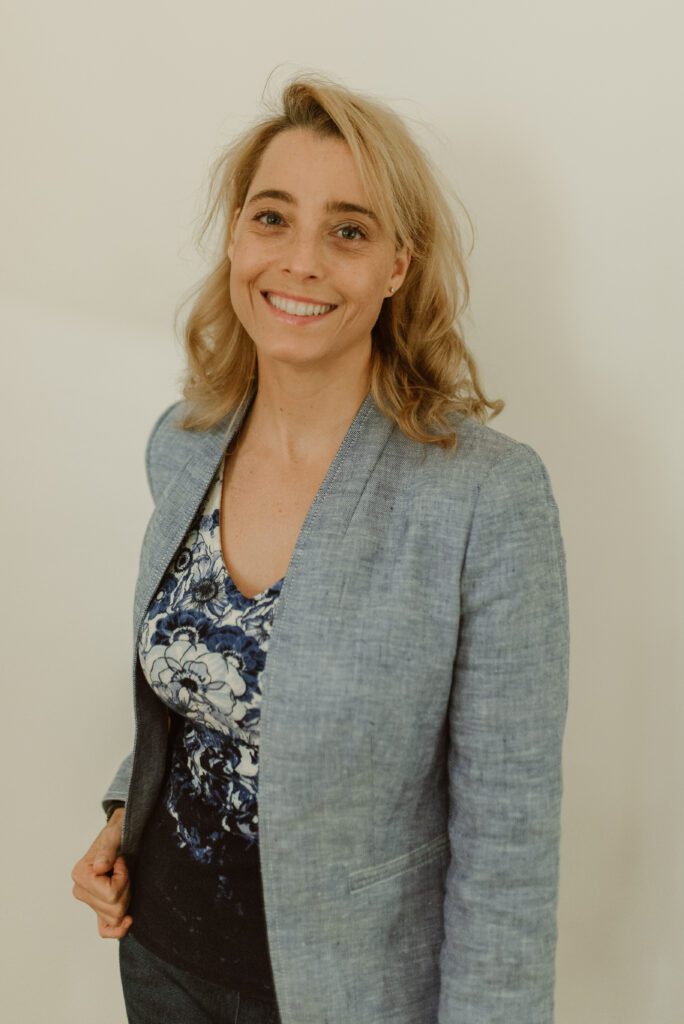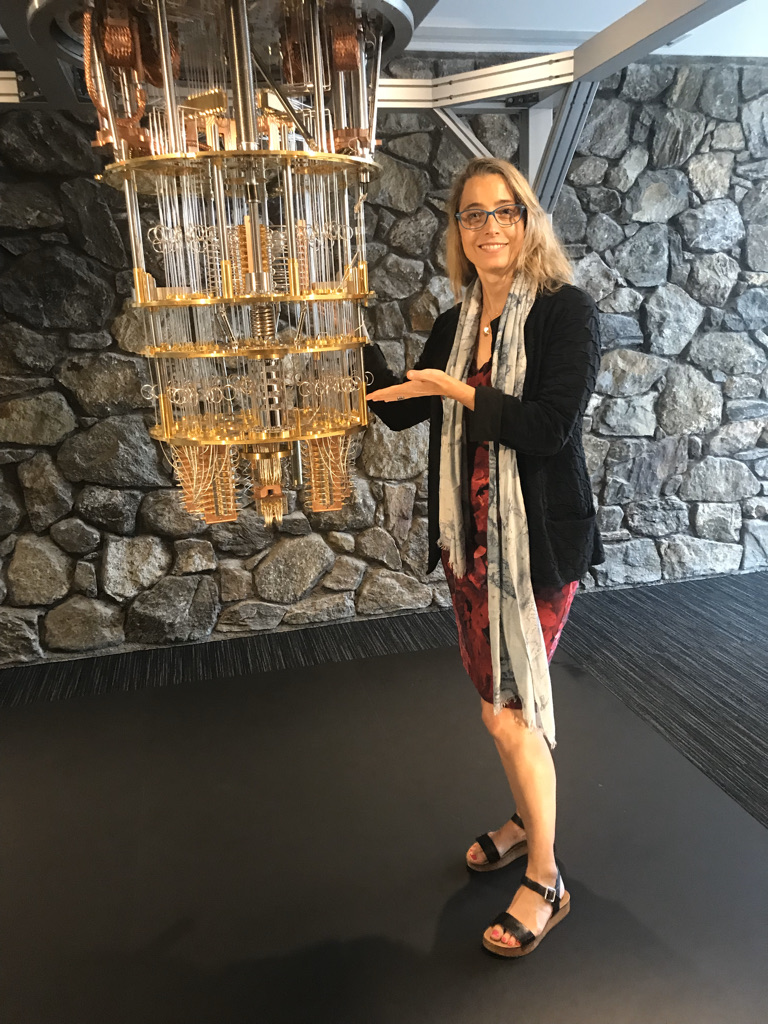Seeing the Future Through Quantum Lenses: Elena Yndurain’s Guide to Navigating the Next Tech Revolution
Interview with Elena Yndurain, strategist specialized in digital transformation and emerging technologies, book author, product director at Microsoft, honorary professor at Universidad Carlos III de Madrid, adjunct professor, and principal researcher in quantum technologies at IE Business School.
Over the last few decades, we’ve witnessed an astonishing wave of new technologies reshaping industries, transforming our homes, and changing the way we see the world, from the rise of the internet to the breakthroughs in artificial intelligence. Now, another breakthrough is on the horizon: quantum computing. Long felt like the stuff of science fiction, whispered about in academic circles, and splashed across speculative think pieces; in recent years, quantum computing has been quietly stepping into the real world. Companies, governments, and research labs are now in a race to explore its capabilities, from climate modeling to drug discovery. And at the forefront of making quantum computing not just understandable, but implementable, is Dr. Elena Yndurain, technology visionary, professor, and author of the book Quantum Computing Strategy: Foundations and Applicability.
Elena’s career began in consulting before moving into industry roles where she was often tasked with bringing new technologies to the market before people even knew they wanted them.
“I started with the web, cloud, apps, mobile, AI; and created new product categories based on each new technology. For example, when apps didn’t exist, I created a whole category to link research and development with the market. How do you introduce this new product to the market? How do you create a market for it? I created the whole journey,” Elena clarifies.

Spotting Game-Changers in Their Infancy
In a career spanning decades and continents, Elena has been analyzing emerging technologies as they are developed in labs, envisioning their potential applications, building bridges between research and the industry—work that demands a rare combination of technical expertise, business acumen, and a great deal of imagination.
“The most exciting part was imagining what you could do with a particular technology. I had to imagine what people could do, thinking about the possibilities,” Elena explains with enthusiasm.
However, as fascinating as her role in the tech arena was, she often found herself pushing against the current. “When we launched the apps, it was a bit of a lonely job in the sense that no one understood what I was doing.” Over her years in the field, Elena witnessed industry titans dismiss innovations that would soon redefine entire markets, moments when the future was knocking, but a few recognized the sound.
“I have a list of famous last words from big companies, such as no one is going to use the cloud or why do we want an app? A lot of people didn’t understand that the smartphone was about the apps. I remember working with Nokia, and they would ask, How many phones will we be selling? And I would be like, this is not about short term; this is about selling the apps.’’
Identifying the Next Big Leap
Elena’s first encounter with quantum computing was equally visionary, “When IBM opened the cloud for their quantum computer in 2016, I remember thinking, this is the future, this is the new technology.”
To fully develop a clear vision, Elena set out to deepen her understanding of quantum technologies, even knowing it demanded a strong foundation in physics. She approached this challenge with humility, initiative, and an unwavering commitment to continuous learning.
“I thought, I need to understand this, then I read books, I took courses… when I was working [as a professor] at IE Business School, I created a course for me to teach, and that experience forced me to understand in depth.”
From an Eager-to-learn Girl to a Global Quantum Computing Leader at IBM
At only 11 years old, Elena’s mother enrolled her in a summer computer programming course. She was the youngest student in a room where even college students were attending. That first encounter with a computer’s ability to follow her instructions ignited a passion that led her to excel in computer science, embrace mathematics as a double major at the University of Michigan, later on a PhD focused on AI, and eventually become a pioneer in the quantum computing industry, shaping the future of technology at IBM.
“When IBM was creating its quantum team, they reached out to me because they needed someone with business expertise. At the time, the group was a mix of researchers and engineers, but they lacked people who understood the business side. And that’s why I joined the team.”
During her time at IBM, she designed an innovative way to prioritize use cases by tracking the evolution of their underlying quantum algorithms, mapping out what they could achieve over time, and predicting the moment they might surpass classical computing. Her method also weighed whether each algorithm would demand fault-tolerant machines or could still deliver results despite the inevitable “noise” of current quantum systems. This forward-looking framework gave organizations a clear, strategic path for deciding which quantum projects to pursue and when.

“At IBM, I worked with a financial company mapping their use cases, helping prioritize them. Usually, companies don’t have the time or the resources to test every idea, so I came up with a flexible method to ranking them. I created a graph where the X-axis represented time, and the Y-axis measured quantum advantage [the tipping point at which quantum computers outperform classical systems on specific tasks].”
Introducing a disruptive technology like quantum computing into the market requires more than technical expertise—it demands a deep understanding of clients, their needs, and the value you can deliver. Elena brought exactly that ability, combining curiosity, humility, and a big-picture mindset with the skill to tailor solutions to each client’s unique circumstances.
Educating the Next Generation and Breaking Down Quantum for Everyone
Multitalented and full of energy, Elena’s career spans both industry and academia. She is also a professor at Universidad Carlos III and IE Business School in Madrid, where she teaches technology strategy, quantum computing, and digital transformation to executives, master’s students, and undergraduates. Her teaching philosophy focuses on making abstract concepts accessible, using real-world analogies and industry applications to bridge theory and practice.

For that reason, connecting complex science to real-world impact is central to Elena’s new book, Quantum Computing Strategy: Foundations and Applicability.
“One day, a quantum physics professor told me: you should write a book, we need a book that combines business with quantum; he thought I was the right person to write it.”
Originally written in non-technical English, using analogies, visual aids, and real-world comparisons to make the material accessible, her book explains essential quantum algorithms, along with overviews of hardware modalities and programming frameworks. It categorizes problems best suited for quantum—spanning simulations, optimization, AI, and secure communications—helping readers identify use cases in their own industries.
“My book is not only for STEM experts, but also for anyone curious about the potential of quantum computing — from investors, decision-makers, and policymakers to educators, professionals in other fields, and even those in technology who know little about quantum.”
The book also explores how quantum computing can tackle specific problems across eleven industries, including aerospace, energy efficiency, and agriculture.
The Loneliness of Being a Woman in STEM
No interview with Elena would be complete without exploring her experience as a woman in the tech business. From feeling isolated in male-dominated teams to encountering bias in hiring and promotions, she has both endured and witnessed persistent barriers.
“We, as women, face a lot of challenges in STEM. Because there are so few of us, it is always a bit hard to create bonding or support. Sometimes I would feel isolated because the teams do not really consider us with the same capacities, but what I have also seen is that, sometimes, men are the ones who help us,” Elena remarks. “In academia, it is quite bad; students tend to be less respectful. Also, if you are a woman and you try to be tough, they will think you are being too hard, but with men then it is fine.”
In leadership roles, she has championed fair hiring and equal pay for women, often mentoring them through the art of negotiation. She stresses the importance of allies:
“Once at a Startup, I had to push hard for a woman to get the position she truly deserved. They wanted to hire her for a lower role than her qualifications warranted. The committee wanted to choose a man with far less experience instead. I had fought for that; I had fought that very hard. When I was head of innovation, I hired a lot of women into the team, and I always helped them to think about their career path and to not be shy and negotiate to make sure they got the best for them. I know that women hesitate to negotiate, we don’t think that we deserve it.”
If Elena’s career teaches one lesson, it’s that the future belongs to those willing to imagine it, and then do the hard work of making it real.
For general questions about IYQ, please contact info@quantum2025.org. For press inquiries, contact iyq2025@hkamarcom.com.


